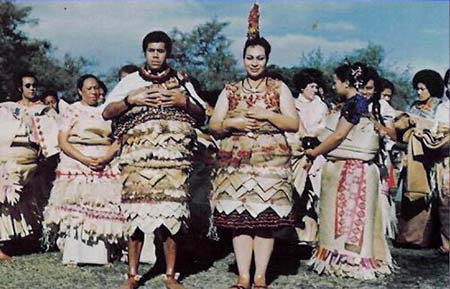ranchosantafenow.net – The Kingdom of Tonga, an archipelago nation in the South Pacific, is a unique blend of ancient traditions and modern governance. Central to its societal structure is the concept of nobility, which has evolved significantly over the years, reflecting the ongoing tension between traditional practices and modern democratic reforms. This article explores the historical and contemporary roles of Tongan nobility, examining their privileges, responsibilities, and the challenges they face in a rapidly changing world.
Historical Context and Traditional Privileges
Tongan nobility, known as the “nobles of the realm,” trace their lineage back to the ancient chiefdoms that governed the islands. The nobility system was formalized in 1875 by King George Tupou I, who introduced significant reforms aimed at stabilizing the kingdom and aligning it with Western practices Traditionally, nobles held significant power, controlling land and labor as titled heads of their respective chiefdoms. They also played a crucial role in the governance of the kingdom, with many holding high-ranking positions in the government and the royal court
Modern Challenges and Democratic Reforms
The advent of democratic reforms in Tonga has significantly altered the power dynamics within the nobility. The Tongan Constitution, while still granting considerable privileges to nobles, has also introduced elements of equality and representation that challenge the traditional dominance of the nobility in political affairs Recent years have seen a reduction in the direct political power of the nobility, particularly in Parliament, where their influence has diminished
The New Nobility and Political Reforms
In response to these changes, a new generation of nobles has emerged, often referred to as the “new nobility.” These young leaders are advocating for political reforms that would modernize the nobility system and make it more responsive to the needs of the common people. They are actively engaging in public discourse and political activities, aiming to bridge the gap between traditional authority and modern governance
Conclusion
The Tongan nobility represents a fascinating case study of how traditional institutions adapt to modern pressures. While the nobility retains significant influence in Tongan society, its role is increasingly shaped by democratic reforms and the demands of a modern, globalized world. As Tonga continues to navigate this delicate balance between tradition and modernity, the nobility will undoubtedly play a crucial role in shaping the future of the kingdom.
This exploration of Tongan nobility highlights the complexities of cultural preservation and political evolution in a small island nation striving to maintain its identity while embracing change. The ongoing dialogue between the nobility and the broader Tongan society is a testament to the resilience and adaptability of Tongan culture.
